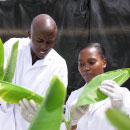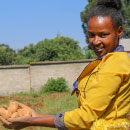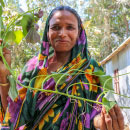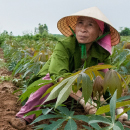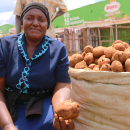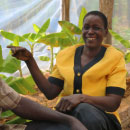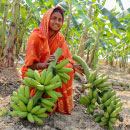In many developing countries, the percentage of young people in the population is increasing rapidly, a change associated with migration and urbanization, unemployment, and instability.
Some policy discussions have suggested that engaging young people in commercial agriculture might be a way to control these trends. How do young people view agriculture? Uganda, with one of the youngest populations in the world, offered RTB researchers an opportunity to investigate in depth.
Detailed interviews with eight young women and eight young men from the same rural community in central Uganda, along with a consideration of additional datasets, revealed some surprises and confirmed some earlier impressions. Out-migration, for example, is common, although in fact more young women (75%) than young men (52%) had moved away at some point. Lack of land and restricted financial support are probably the factors behind greater migration among women, although finding a husband from outside the community was also a consideration.
In general, the interviewees did not mention farming as an aspiration, although all but two (one woman and one man) were still connected with agriculture in some way. Again, though, there were differences. Some (three women and one man) are reluctant farmers. They would prefer to do something else but currently see no alternative. For the women, all three of whom had become pregnant while living in town, farming, on their parents’ land or a rented plot, is a dead end but a necessity to feed themselves and their children. The young man has to work for his father, because other resources are being devoted to the father’s children by a younger wife.
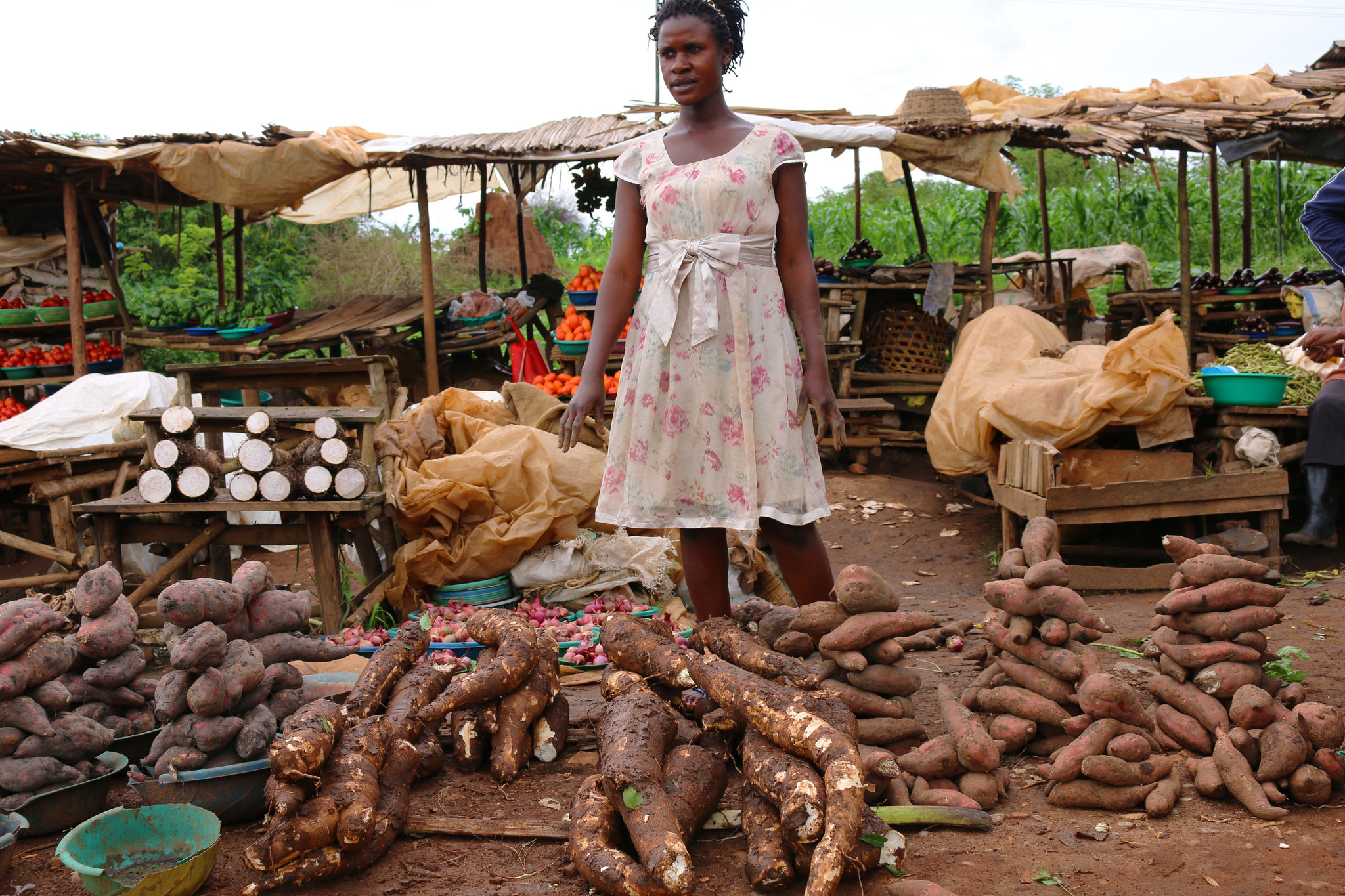
The majority (four women and four men) see farming as part of a diversification strategy, an important contribution to their livelihoods but only in combination with other activities. The women in this group, like the women reluctant farmers, farm to provide food for the household, and often have another job such as needlework and tailoring. For the men, farming is primarily commercial, a means to gain income and reduce risk. Notably, the men had either been given land by parents or had used their income to buy and rent land. The women were cultivating their own plots on their husband’s land.
A final group of two young men thought of farming as their dream and their future. One is a poorly educated young man from a landless family whose grandparents had come from Burundi. He moves back and forth from his birthplace to work in various towns in order to save enough money to buy land for a banana plantation that will be large enough to sustain the family he plans on having. The other is from a privileged background. He currently farms on his parents’ land, but plans to go to university to study agriculture, hoping to become a modern farmer and an agricultural extension officer.
Crucially, the researchers note, their study shows that there are a great many factors besides gender that influence attitudes to farming: wealth and family background underlie inequalities and disadvantages for young women and young men, though social norms limit women’s horizons more. While the details of this study cannot be generalized, they do illuminate the need for development projects to consider the many different factors that can encourage or discourage young people from pursuing agriculture.

